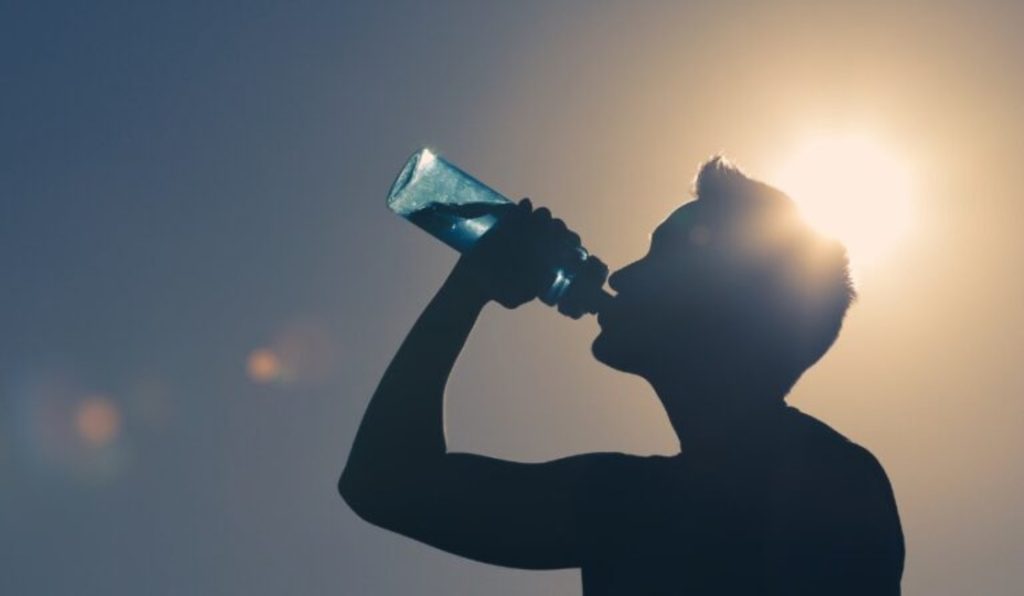Is your body asking for water without you noticing? Think back—When was the last time you drank a proper glass of water? Despite knowing hydration is key to good health, many people in Britain, United Kingdom (UK), still don’t drink enough throughout the day.
Recent research from PureGym reveals that most Britons consume well below the advised six to eight glasses daily. This silent habit not only leaves us feeling low on energy but can gradually lead to dehydration-related health complications if left unchecked.
Water is fundamental to nearly every process in the human body. Also known as (H₂O) is a vital inorganic compound that exists naturally in liquid, solid (ice), and gaseous (steam) states. It’s a transparent, tasteless, and odourless substance that forms the Earth’s hydrosphere, including oceans, lakes, rivers, and rain. Water is also a major constituent of living organisms.
Water consumption helps regulate temperature, supports organ function, removes waste, and cushions your joints. Without enough fluids, even basic functions can falter, leading to both short-term discomfort and long-term health risks.
Experts warn that most of us may be operating in a state of mild dehydration without even realising it. Stavros Kavouras, a leading hydration researcher at Arizona State University, explains that inadequate fluid intake is linked to chronic diseases such as high blood pressure, diabetes, and cognitive decline.
As the body loses around 2 to 2.5 litres of water daily through normal activities like breathing, urination, and sweating, replacing these fluids is essential. The need becomes even more urgent in hot weather or during illness, especially in older adults who are more vulnerable to the effects of dehydration.
Read Also: Nigeria urged to prioritise diagnostics as a basic health right
Here are six signs your body is telling you to drink more water:
1. Feeling thirsty
Thirst is your body’s first red flag. If you feel parched, you’re already slightly dehydrated. Losing even a small percentage of body weight in fluids can trigger thirst, particularly in warm environments or during physical activity. Drinking water quickly restores balance and makes you feel better.
2. Darker urine
Your urine is a reliable hydration indicator. Pale yellow is ideal; if it’s a dark amber or brown, it’s time to rehydrate. When fluid levels drop, your body conserves water by concentrating urine, putting extra strain on the kidneys and raising the risk of infections or kidney stones.
3. Brain fog or trouble concentrating
Because the brain is mostly water, even mild dehydration can affect memory, focus, and coordination. Research shows that professionals like doctors and nurses who don’t hydrate properly during shifts experience measurable cognitive decline—something that can be reversed by simply drinking a glass of water.
4. Headaches
Dehydration can cause or worsen headaches by reducing fluid around the brain, increasing pressure and triggering pain receptors. If a headache improves with fluids and rest, dehydration may be the culprit. Staying hydrated is also important in managing migraines, as it may reduce their intensity and frequency.
5. Fatigue and low energy
If you’re feeling constantly drained, dehydration could be playing a role. Water is essential for maintaining blood circulation and oxygen delivery. Without enough of it, your heart must work harder, leading to feelings of exhaustion, especially in hot weather or after physical exertion.
6. Dizziness or fainting spells
In more severe cases, dehydration can cause your blood pressure to drop, making you feel lightheaded or even causing fainting. This happens when fluid loss interferes with the body’s ability to regulate temperature and blood flow. At this stage, oral rehydration salts or even medical intervention may be necessary.
The bottom line? Don’t wait until you’re gasping for water to hydrate. Make it a habit to sip fluids regularly, especially in warm weather or during illness. And remember: your body is about 60% water—for everything to run smoothly, it needs regular top-ups.



